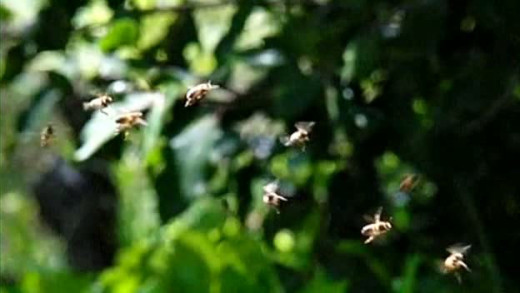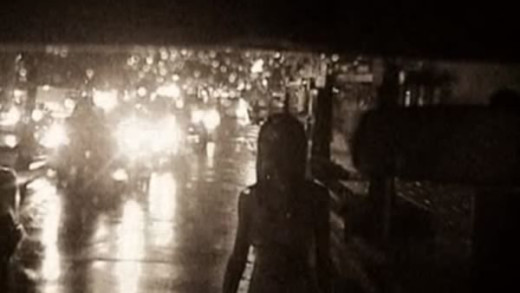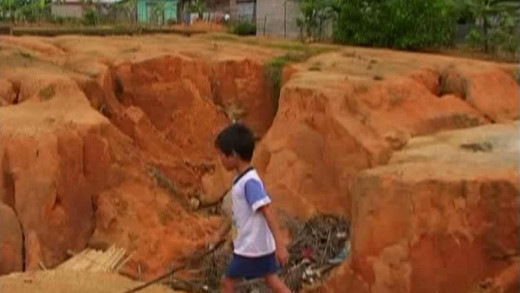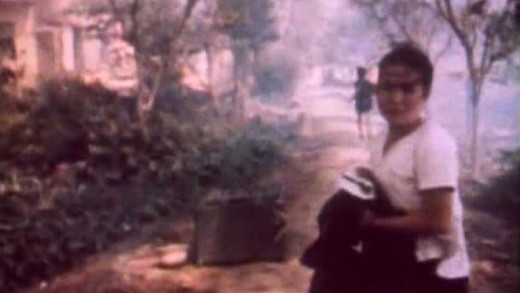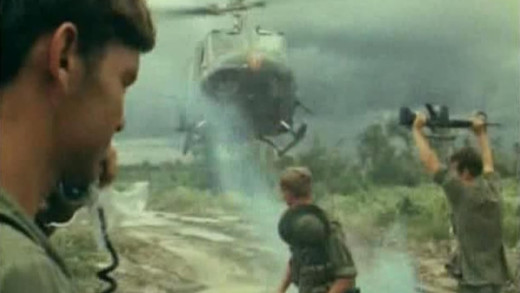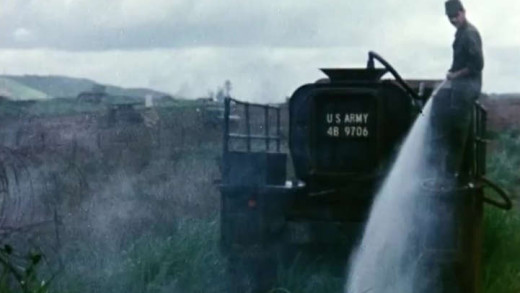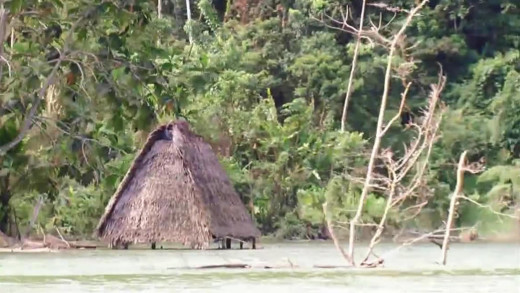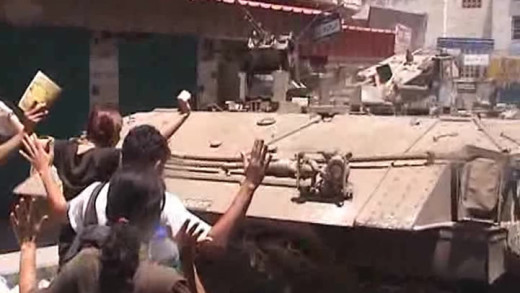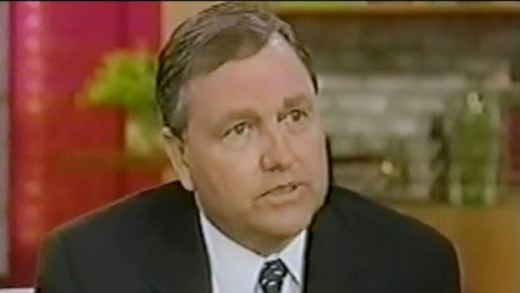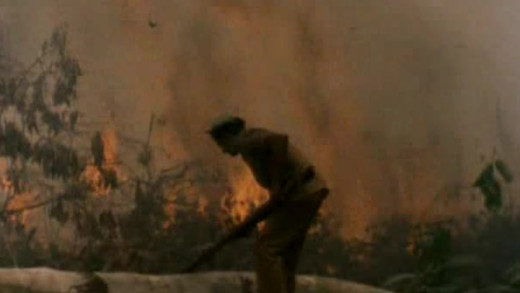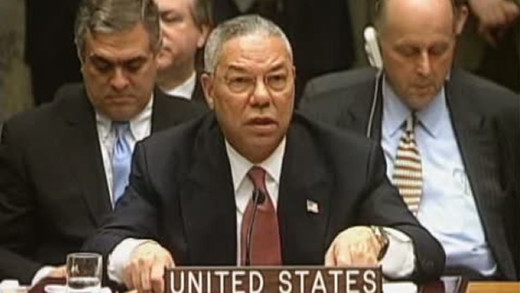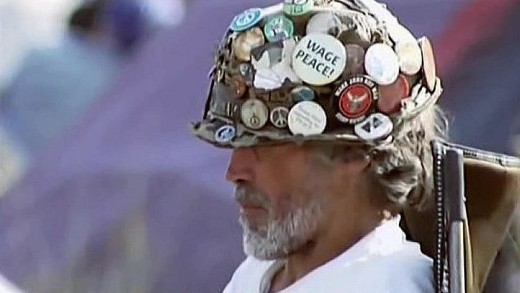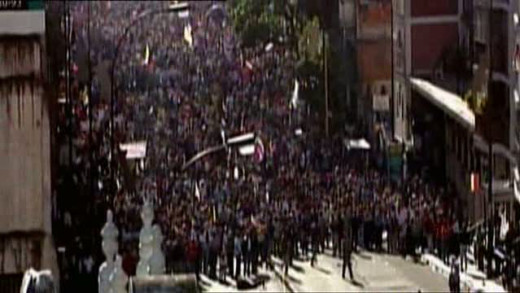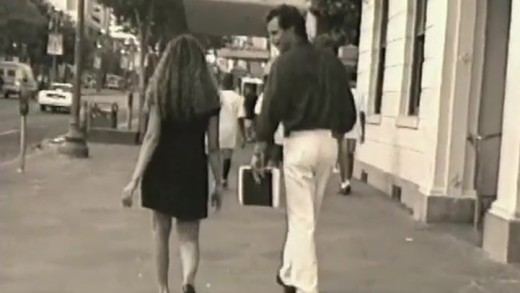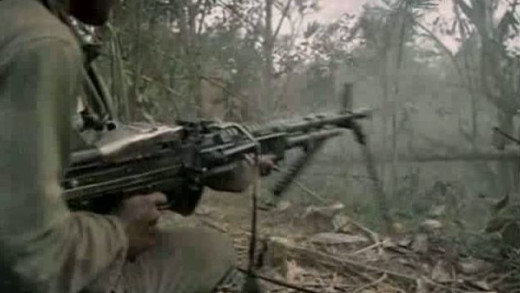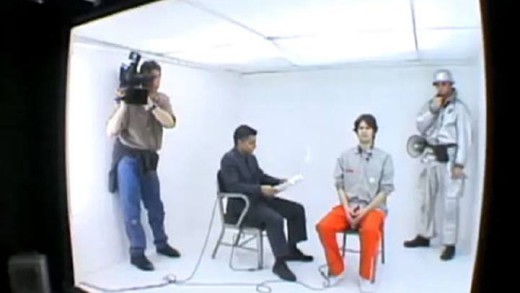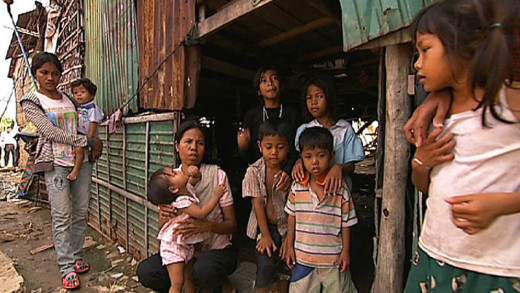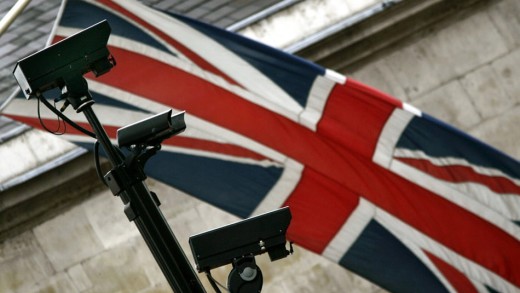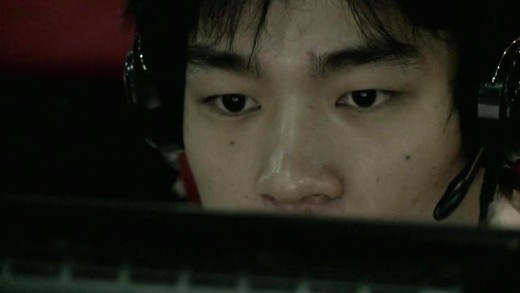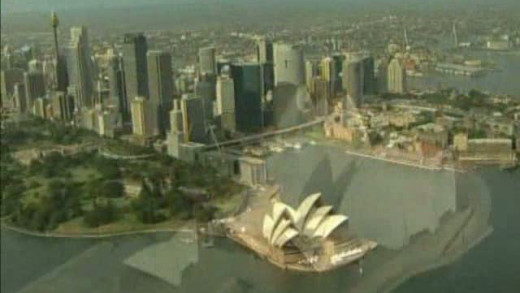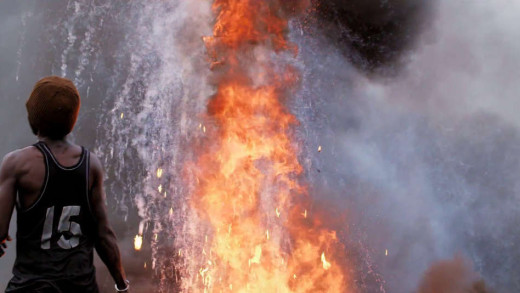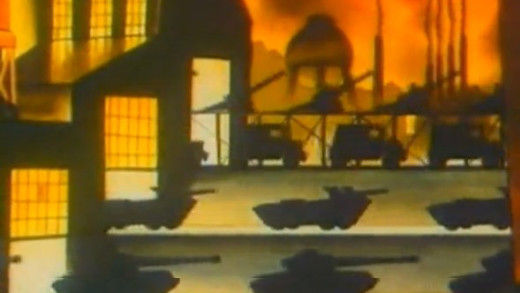Bees have been mysteriously disappearing, literally vanishing from their hives. Known as 'Colony Collapse', the phenomenon has brought the commercial food industry to crisis. Commercial honeybee operations pollinate monocrops that make up one out of every three bites of food in the western world. Vanishing Of The Bees follows beekeepers David Hackenberg and Dave Mendes as they strive to keep their bees healthy and fulfil pollination contracts across the United States; examining the alarming disappearance of honeybees and the greater meaning it holds about the relationship between industrial culture and ecology...
As an exposé of human trafficking, Very Young Girls follows a group of adolescent African-American girls who were seduced, abused and sold on New York's streets by pimps, having survived the life to share their story. Each recount their experiences, captured alongside startling footage shot by the brazen pimps themselves, giving a rare glimpse into how the cycle of street life begins for many women. Following the work of Rachel Lloyd and the journey each go through to exit their life on the streets, Very Young Girls portrays first-hand the occurrences of human trafficking throughout the United States.
For the people of Vietnam, war is not over. Three generations on from 1975, babies are still being born with serious birth defects and genetic abnormalities -- the legacy of the United States intensive use of chemical weapons. To this day, it is still unknown just how many have been affected. In 2005, on the eve of a historic lawsuit to determine the culpability of the United States, this film directly portrays the powerful effects of Agent Orange.
After the 1973 Paris Agreement and military ceasefire, more than 70,000 soldiers and civilians had been killed in Vietnam. Vietnam -- Still America's War investigates how the Vietnamese populace still have to contend with mines and other legacies of the war, even after the ceasefire, and after the war...
In 1975, John Pilger reported the end of the Vietnam War from the American Embassy in Saigon, where the last American troops fled from the roof-top helicopter pad. Twenty years later, he returns to Vietnam to revive the Vietnamese past and present from the plethora of fake Hollywood images which pity the invader, and overshadow one of the most epic struggles of the 20th century.
Using interviews and frontline footage, Vietnam -- The Quiet Mutiny reveals the internal sense of disillusionment and frustration born from the rift between bureaucracy and soldiers, that triggers the withdrawal of the United States military from Vietnam. As the US employs psychological warfare against the Vietnamese, reporter John Pilger finds himself unable to obtain meaningful information from the military—a press conference he attends is nicknamed "the 5 o'clock follies" for the evasive nature of the proceedings. And so it is with the grunts, the "wheels of the green machine," that Pilger finds a very human side to the US presence in Vietnam: soldiers who were once ready to serve their country, now doubtful of their purpose there. Plied with visits from Miss America and ignored by Vice President Spiro Agnew, they experience the war in a way many of their superiors do not.
Vietnam: The Secret Agent is an investigation of the history, effects, and implications of the deadly compound "2,4,5-T," a main ingredient of the chemical weapon code-named Agent Orange, which the United States sprayed throughout Vietnam during 1961 to 1971. Its toxicological effects are still seen today, generations later: cancers, birth defects, physical deformities, deaths, contaminated soil in which dioxins bio-accumulate and concentrate in the food cycle. The chemical started as a herbicide in agriculture from the 1940s to 1970s, but was the first to be used in war, to similar effect. The film focuses on the exposure of these toxins to both citizens and soldiers alike, exposed through the lens of archival and battle-field footage, in support of interviews with veterans, scientists, attorneys and representatives of Dow Chemical--the company that made the chemical weapons--and the United States government, that used them against the world.
Away from its busy capital city and famous canal, Panama is one of the world's most ecologically diverse nations. Yet huge new hydroelectric dam projects now underway are seeing pristine rivers damned and virgin rainforest flooded. The government says it is vital for 'economic growth', with international corporate interests rushing into the country, and even the United Nations awarding 'carbon credits' on the basis that the resultant energy will be "sustainably produced". But for the indigenous Ngabe people--whose homes are vanishing under water--it is a catastrophe, and they are fighting back...
What drives a young Westerner to volunteer as a peace activist in the Middle East? Visit Palestine follows Caiomhe Butterly—a young woman from Dublin, Ireland; who is one of a growing number of volunteers who risk their own lives to intervene in the long-running and bloody conflict of the occupation of Palestine. Activists such as Butterly are usually stereotyped as lunatics, meddlers or saints. This film offers a first-hand insight into a brave, honest, determined yet self-critical woman who takes direct action to the limit, with no quest for glory. The film also serves as a real conduit into the everyday lives of Palestinians, fighting for their lives...
Walmart is an iconic American company, known worldwide for selling cheap retail goods. While economists and global marketers call Walmart a success, there are many stories of mistreatment of employees, and a general feeling of mistrust and discontent among the businesses it has destroyed, such as local community stores. Walmart -- High Cost Of Low Prices highlights that it is worth being aware of the labour, social and corporate governance practices of companies that you do business with...
War By Other Means examines the policy of western banks making loans to so-called 'third world' countries, which are then unable to meet the crippling interest charges—debt used as a weapon. The film primarily analyses 'Structural Adjustment Programs,' which are proclaimed to enable countries to compete in the 'global economy,' but have the opposite effect of lowering wages which in turn further transfers the wealth from the poor to the rich.
Reaching into the Orwellian memory hole, War Made Easy exposes the some 50-year pattern of government deception and media spin that has dragged the United States into one war after another from Vietnam to Iraq. Using archival footage of official distortion and exaggeration from LBJ to George Bush, this film reveals how the American news media have uncritically disseminated the pro-war messages of successive governments -- paying special attention to the parallels between the Vietnam war and the war in Iraq...
War Matters
War Matters chronicles a decade of anti-war protest in Britain through the story of veteran peace campaigner Brian Haw, who camped in Parliament Square for over 10 years in protest against the UK government's policies in the Middle East. Brian began his campaign against war on 2nd June 2001, initially in protest of the sanctions against Iraq. After the September 11 attacks in the United States later on that year, Brian's campaign took on a whole new level of importance. War Matters documents this shift by examining the larger issue of the British arms trade and the repercussions of the Iraq and Afghanistan wars around the world, as civil rights are being curtailed in so-called democracies. Where does democracy end and tyranny begin?
Set in Latin America and the US, War on Democracy explores the historic and current relationship of Washington with countries such as Venezuela, Bolivia and Chile. John Pilger examines the role of Washington in America's manipulation of Latin America during the last 50 years leading up to the struggle by ordinary people to free themselves from poverty and racism...
War Zone is a short film about street harassment. Filmmaker Maggie Hadleigh-West walks crowded urban streets armed with a camera and microphone, trailed by one or two women also with cameras. Whenever a man harasses her, with ogling or words, she turns the camera on him, moves in close, and questions his behaviour. The questions are not usually for dialogue but more for making him as uncomfortable as he's made her. More than 50 such encounters are included: the men react with bravado, embarrassment, or anger. None apologise. Interspersed are the filmmaker's voice-over stories of growing up and dealing with men, as well as interviews with several women who talk about how they handle similar street harassment and what they feel about it. What does it feel like to be a woman on the street in a cultural environment that does nothing to discourage men from heckling, following, touching or disparaging women in public spaces?
How can we make political change if peaceful demonstration is not effective and violence only brings more violence? War/Peace posits this question by reintroducing two surviving figures from the Weather Underground movement of the late 1960s, Bernardine Dohrn and Bill Ayers. Coming from the hippy counterculture, the Weather Underground was a radical militant organisation, with revolutionary positions characterised by the Black Power and civil rights movements, as well as opposition to the Vietnam War. In 1970, the group issued a "Declaration of a State of War" against the United States government, with the goal to overthrow the government and end United States' imperialism, culminating in a bombing campaign targeting government buildings along with several banks. War/Peace rewinds to the past to draw out the complexity of these political struggles, and what went wrong, while drawing parallels to the struggles of today, where a lot has changed, but a lot has also remained the same.
Watergate is a mini-series that provides insight on the presidential corruption scandal in the United States involving Richard M. Nixon through the early 1970s. The scandal eventually led to his resignation as America's president. The series is based on the book Watergate: The Corruption and Fall of Richard Nixon, by Fred Emery.
We
We is a visual essay exploring the politics of empire, war, corporate globalisation, imperialism and history; using the words of Indian author and political activist Arundhati Roy, from her speech Come September given in Santa Fe, New Mexico one year after the September 11th attacks--not long after the invasion of Afghanistan. The result is a mix of archive footage illustrating specific historical events throughout South America, the Middle East and elsewhere, in context with the September 11th attacks; placed alongside the themes of empire, global economics and a short history of neo-collonialism...
We Are Traffic
We Are Traffic chronicles the history and development of the "Critical Mass" bicycle movement -- one of the most dynamic social political movements of the apathetic 90s. In over 200 cities in 14 different countries, Critical Mass has now become a monthly ritual of reclaiming the streets by bicycle activists riding en masse...
Every day in Vienna the amount of unsold bread that is sent back and thrown away is enough to supply Austria's second-largest city, Graz. Around 350,000 hectares of agricultural land, above all in Latin America, are dedicated to the cultivation of soybeans to feed Austria’s livestock, while one quarter of the local population starves. Every European eats ten kilograms a year of artificially irrigated greenhouse vegetables from southern Spain, with water shortages as the result. We Feed The World is a film about food and globalisation, fishermen and farmers, long-distance truck drivers and high-powered corporate executives, the flow of goods and cash flow, a film about scarcity amongst plenty.
This film explores what affect the web is having on our society, as seen through the eyes of "the greatest Internet pioneer you've never heard of." Josh Harris--often called the "Andy Warhol of the Web"--founded a website during the renowned dot-com boom of the 1990s which was the world's first Internet television network. This concept was way ahead of its time. Using this platform, before broadband, a vision of that future was exemplified at an underground bunker in New York City where over 100 people lived together completely on camera, non-stop and unedited for 30 days over the millennium. These happenings, documented through We Live In Public, serve as a powerful analogy for the Internet as it's now known today and the price we pay for living in its 'public.' It shows the costs of willingly trading privacy and sanity for a constant voracious audience, attention, and the pursuit of celebrity, in an online world of pervasive surveillance.
We Will Not Be Moved documents the unpredictable reality for thousands of Cambodia's poor that are being forcibly evicted from their houses in the name of urban development. Cambodia's land ownership was thrown into chaos when Pol Pot's Khmer Rouge extinguished private title but now money and corruption are playing havoc with the country's attempts to bring back private property. There is one brave group known as the BK13--a group of 13 women--that are not prepared to let greedy developers take the very, very little they have. But with half a million residents forcibly evicted in recent years, it's an enormous fight they have on their hands...
Governments all around the world are using high-tech mass surveillance tools to monitor their citizens. Western corporations, including Britain's largest weapons manufacturer, BAE, are among those which are creating and selling mass surveillance infrastructures all across the globe, but especially to particularly repressive regimes. Weapons of Mass Surveillance makes example of what is happening throughout the Middle East where journalists, human rights advocates and activists are being targeted with surveillance tools developed by western corporations with extreme real-world consequences. Political opponents to tyrannical power are targeted, jailed, and in some cases, tortured or "disappeared." This shows the power of mass surveillance tools for great harm, and how the west is culpable in perpetuating systemic repression both at home and abroad.
Web Junkie travels to China, the first country in the world where Internet addiction has been classified as a clinical disorder. The film focuses on the methods used to treat young people, which reveal a surreal mix of prison, hospital, and military operations, with a dose of group therapy thrown in for good measure. We also see the cultural and emotional effects of Internet addiction in China's society of hyper-competitiveness, which speaks to the dominant culture worldwide. Web Junkie exposes the virtual world in a country—and indeed world—of disparity, where health officials have no idea how to cope with a younger generation that finds World of Warcraft more exciting and supposedly more "real" than their own lives.
The 2000 Olympic Games in Sydney were universally recognised as an overwhelming success. The Australian heroine from start, when she carried the Olympic torch into the stadium, to finish, as she crossed the line to take 400m gold, was the indigenous athlete Cathy Freeman. Against the will of many of her still oppressed people, she came to represent the symbol, albeit shallow, of reconciliation between White Australia and Indigenous Australia. But the frenzy of flames and fireworks surrounding the Games blinded the rest of the world to the real history behind it all...
Hundreds of thousands of mobile phones, LCD screens, TVs, notebooks, tablets, and computers become useless or quickly "out-of-date" and end up in Ghana every year, where children and adolescents dismantle them for "recycling." Welcome to Sodom profiles the life of those who work in the brutal conditions, handling the world's electronic waste, and what they endure to barely make enough money to survive. Many years before the wasteland, Ghana was a beautiful savanna with greenery and animals, now it's a hell of fire, toxins, acrid smoke, plastic, and pollution, at the behest of the global economy and the technoculture that drives it.
At the turn of the millennium, a group of eleven girls aged 8 to 16 from a variety of socio-economic backgrounds were interviewed about their views on media culture and its impact on their lives. Their insightful and provocative responses reveal how the attitudes and expectations of young girls are influenced by a saturated media culture. Using excerpts culled from a typical week of television broadcasting alongside the interviews, What a Girl Wants aims to provoke debate about the effects of media culture and, ideally, act as a catalyst for change in media content.
What A Way To Go: Life At The End Of Empire covers the current situation facing humanity globally. It discusses issues such as peak oil, climate change, population overshoot and species extinction, as well as how this situation has developed...
